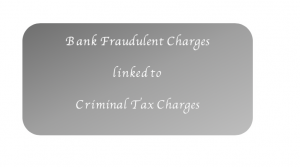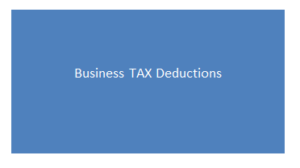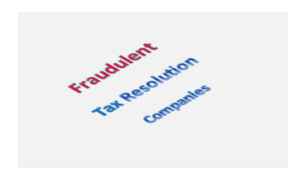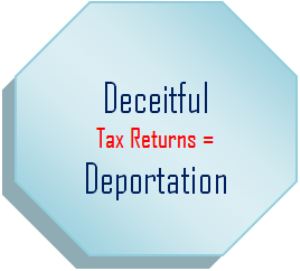Why it’s a Very Bad Idea?
 A taxpayer who owes or anticipates owing a substantial amount of income tax to the IRS may be tempted to transfer his or her property to a spouse, a relative or a nominee entity with the hope of preventing the IRS from collecting the outstanding tax debt. Similarly, a taxpayer may have an incentive to transfer property to a third party, in circumstances where the taxpayer may be subject to the 26 U.S.C. § 6672(Trust Fund Penalty). The taxpayer usually justifies such a transfer as “strategic planning.” Sometimes the taxpayer acts alone. In other instances, the taxpayer may be aided by a complicit, inexperienced or incompetent attorney.
A taxpayer who owes or anticipates owing a substantial amount of income tax to the IRS may be tempted to transfer his or her property to a spouse, a relative or a nominee entity with the hope of preventing the IRS from collecting the outstanding tax debt. Similarly, a taxpayer may have an incentive to transfer property to a third party, in circumstances where the taxpayer may be subject to the 26 U.S.C. § 6672(Trust Fund Penalty). The taxpayer usually justifies such a transfer as “strategic planning.” Sometimes the taxpayer acts alone. In other instances, the taxpayer may be aided by a complicit, inexperienced or incompetent attorney.
These tactical maneuvers almost always fail and invariably result in the property transfer being judicially set aside, and/or the imposition of personal liability on the part of the transferee. In addition, the illicit transfer of property can result in significant civil and criminal penalties as well as criminal prosecution.
The discussion that follows examines the judicial remedies available to IRS including the commencement of a fraudulent conveyance action in either a state or federal court pursuant to state law or the Federal Debt Collections Practices Act (“FDCPA”). The discussion will also examine the imposition of transferee personal liability under 26U.S.C. § 6901.
Fraudulent conveyance
In general, a fraudulent conveyance represents a conveyance of property to a third party without consideration or for less than adequate consideration. Procedurally, the IRS has the burden of proving that either constructiveor actual fraudexists. Constructive fraudexists where a taxpayer’s property is transferred for less than its fair value and the taxpayer is insolvent at the time of the transfer or is rendered insolvent following the transfer. Actual fraudexists where a taxpayer transfers property to a third party with actual intent to hinder, delay, or defraud the IRS in the collection of the tax debt.
Constructive fraud
In the context of constructive fraud, the IRS must establish the following elements in order to set aside a transfer of property:
-
- That the alleged transferee received property of the transferor.
- That the transfer was made without consideration or for less than adequate consideration.
- That the transfer was made during or after the period for which the tax liability accrued.
- That the transferor was insolvent prior to or because of the transfer of property or that the transfer of property was one of a series of distribution of property that resulted in the insolvency of the transferor.
- That all reasonable efforts to collect from the transferor were made and further collection efforts would be futile.
The above elements suffice to establish constructive fraud and it is unnecessary for the IRS to prove actual intent to defraud.
Actual fraud
In order to establish actual fraud, the IRS must prove the taxpayer’s actual intent to hinder or delay or defraud the IRS. The FDCPA identifies eleven non-exclusive factors to be considered including:
-
- Whether the transfer was made to an insider.
- Whether the transfer represents substantially all of the taxpayer’s assets.
- Whether the value of consideration received by the taxpayer was reasonably equivalent.
- Whether the taxpayer was insolvent or became insolvent shortly after the transfer was made.
- Whether the transfer occurred shortly before or shortly after the tax debt was incurred.
In addition to commencing an action to set aside a fraudulent conveyance, IRC § 6901provides the IRS with a procedural mechanism for holding the transferee personally liable for the debt of the taxpayer. In contrast to an action to set aside a property transfer, Section 6901 is focused on the transferee rather than to the property. It is noteworthy that commencing an action to set aside a fraudulent transfer and imposing personal transferee liability under Section 6901 are not mutually exclusive remedies. The IRS may consider reliance on the FDCPA or a state’s fraudulent conveyance statute as the basis for imposing personal transferee liability and may also pursue multiple remedies.
Transferee liability
To establish personal transferee liability, the IRS has the burden of proving the existence and extent of the transferee’s liability. In addition, where the taxpayer unsuccessfully contests the liability in a judicial proceeding, the taxpayer as well as the transferee is estopped from contesting the liability either in a fraudulent conveyance action or for purposes of imposing personal transferee liability. The IRS has the burden of establishing the taxpayer’s tax liability and the amount. However, the transferee’s liability is capped at the value of the property transferred. The transferee seeking to avoid or mitigate transferee liability must prove the taxpayer’s liability is less than the amount asserted by the IRS.
A taxpayer, who is considering making a transfer of property to avoid his or her income tax obligations is creating a substantial risk that the transfer will be set aside and/or the transferee will be personally liable. Moreover, a taxpayer may soon find himself/ herself the subject of a criminal investigation. When considering such a decision, a taxpayer should always first consult with a knowledgeable and experienced tax attorney for a comprehensive review of all the relevant facts. Depending on the circumstances, payment arrangements can be made with the IRS.

 Individuals, who have failed to report their foreign financial accounts, may feel a sense of relief, in light of the corona virus and its effects on IRS investigations. Better think again!
Individuals, who have failed to report their foreign financial accounts, may feel a sense of relief, in light of the corona virus and its effects on IRS investigations. Better think again! The temptation to use unfilled or altered tax returns as well as doctored financial statements for purposes of securing a bank loan, while not common, does occur. This practice typically occurs where an individual is faced with financial difficulties and sees no other way out. The consequences of submitting false documents including unfiled and false returns are strong evidence of the willful failure to file income tax returns as well as income tax evasion.
The temptation to use unfilled or altered tax returns as well as doctored financial statements for purposes of securing a bank loan, while not common, does occur. This practice typically occurs where an individual is faced with financial difficulties and sees no other way out. The consequences of submitting false documents including unfiled and false returns are strong evidence of the willful failure to file income tax returns as well as income tax evasion. Employers who willfully fail to remit an employee’s withholding to the IRS are liable to the IRS for the
Employers who willfully fail to remit an employee’s withholding to the IRS are liable to the IRS for the  The justification for purchasing that $75,000 Mercedes, Rolex watch or other luxury item, paying for an expensive vacation, making monthly mortgage payments on one’s personal residence, and paying for home improvements then deducting these expenditures as ordinary and necessary business expenses is sometimes based upon a sense of entitlement. In other instances, a business owner who claims deductions for personal expenses may feel justified in financially ingratiating himself based upon a mistaken belief that the sole predicate for tax evasion is the under-reporting of gross income. Nevertheless, a misunderstanding of the tax rules pertaining to reporting of income and expenses in connection with the operation of a trade or a business or the IRS definition of
The justification for purchasing that $75,000 Mercedes, Rolex watch or other luxury item, paying for an expensive vacation, making monthly mortgage payments on one’s personal residence, and paying for home improvements then deducting these expenditures as ordinary and necessary business expenses is sometimes based upon a sense of entitlement. In other instances, a business owner who claims deductions for personal expenses may feel justified in financially ingratiating himself based upon a mistaken belief that the sole predicate for tax evasion is the under-reporting of gross income. Nevertheless, a misunderstanding of the tax rules pertaining to reporting of income and expenses in connection with the operation of a trade or a business or the IRS definition of  In 1931, the famous jurist, Benjamin Nathan Cardozo, in discussing fraud stated that: “Fraud is the pretense of knowledge when knowledge there is none.”
In 1931, the famous jurist, Benjamin Nathan Cardozo, in discussing fraud stated that: “Fraud is the pretense of knowledge when knowledge there is none.” 
 on their tax returns in order to secure large refunds to which they are not entitled. To address this trend, the IRS has vowed to heighten scrutiny with the commitment to go after these taxpayers with vigor. As such, you will see increased civil, and in certain cases, criminal penalties being assessed on the perpetrators.
on their tax returns in order to secure large refunds to which they are not entitled. To address this trend, the IRS has vowed to heighten scrutiny with the commitment to go after these taxpayers with vigor. As such, you will see increased civil, and in certain cases, criminal penalties being assessed on the perpetrators. On January 12, 2017 Steven Lynch, a Pittsburgh tax attorney, was sentenced to 48 months in prison,following his conviction for the willful failure to pay over payroll taxes (Trust Fund Taxes). The defendant co-owned and operated a recreational sports facility in Washington, County, Pennsylvania between 2004 and 2015.
On January 12, 2017 Steven Lynch, a Pittsburgh tax attorney, was sentenced to 48 months in prison,following his conviction for the willful failure to pay over payroll taxes (Trust Fund Taxes). The defendant co-owned and operated a recreational sports facility in Washington, County, Pennsylvania between 2004 and 2015. 
